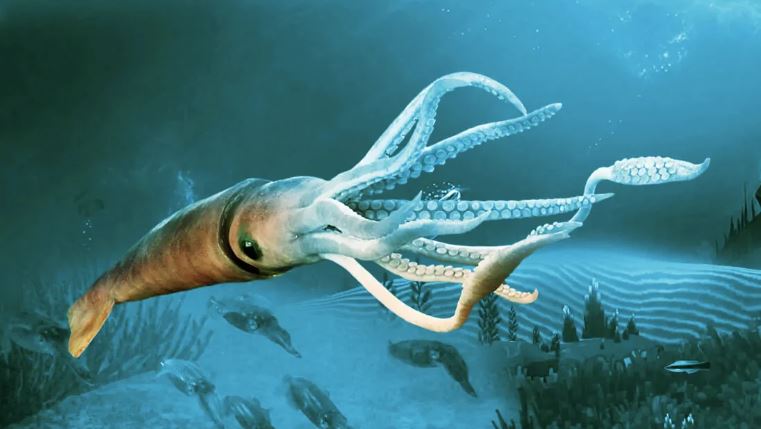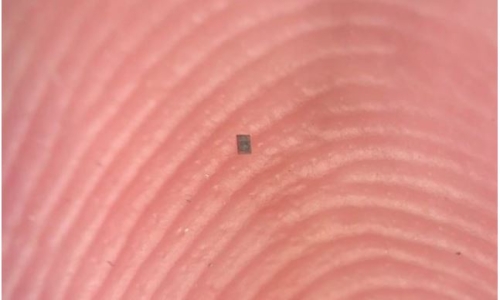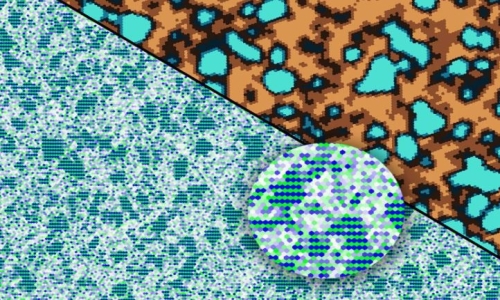


 12:32:27
12:32:27  2023-05-21
2023-05-21  1340
1340

Squid have been around for millions of years, and inspired legends of terrifying ship-devouring sea monsters. But far from brutes that terrorize humans, these masters of deception rely on their wiles to survive, and their ingenious behaviors have pushed forward futuristic innovations like intelligent camouflage and self-healing robots.
The more than 300 species of squid are found in every ocean, where they can live alone or in schools. While some squid live in shallow waters, the deepest recording of a bigfin squid was a staggering three miles below the surface.
Squid also come in all sizes: from pygmy squid that are the size of a pinky fingernail to giant squid which may reach as many as 59 feet long—which is perhaps why this gigantic beast inspired the legend of the kraken. However, while the oldest known example of a squid-like creature attacking prey dates back nearly 200 million years, squid are not known to hunt humans, or sink ships.
Like octopus and cuttlefish, squid are a type of cephalopod, Greek for “head foot.” Behind the animal’s head is a soft, elongated mantle: a muscular space containing its organs. Unlike an octopus, which has no skeleton, squid have an internal shell called a gladius, or pen. This stiff backbone-like structure supports the mantle and gives muscles something to attach to so the squid can keep its shape.
A squid’s mouth—found at the base of the mantle—has a hard parrot-like beak for killing and eating prey, which include fish, crustaceans and other squid. Surrounding the mouth are two long tentacles with suckers at the tips that the animal uses to grab prey and eight sucker-lined arms that it uses to hold its meal while it eats.
Squid have short life spans and usually die soon after mating, at around one year old. After copulation males stay close to the female until she lays her eggs to prevent others mating with her, a behavior called mate guarding. Paternal care among cephalopods is rare so scientists were surprised to find that male bigfin reef squid help choose homes for their mates.
Squid move by jet propulsion. They fill their mantle with water through small openings in their head, and then eject the water through a funnel called the siphon, which moves to adjust direction. Some species can build up enough speed to become airborne. They launch themselves into the air, fan out their tentacles like a sail, and fly above the surface for up to 164 feet. This may be to save energy or escape from predators. While they are not technically able to fly, this behavior has earned some species the name “flying squid.”
Squid are highly intelligent: They can rapidly change skin color using special pigment-filled cells called chromatophores to hide from danger, warn off potential attackers, or use the patterns on their skin as a secret code that allows them to communicate with other squid while remaining invisible to predators. And that’s not all. Squid can also make themselves transparent, override their their genetic code, and some species, such as the Humboldt squid, work together to hunt in packs.
One squid species even evades predators by breaking off its own arms. Just like a lizard might detach its tail, the Octopoteuthis deletron tears off the wriggling tips of its arms and leaves them behind to distract the predator while escaping. Although some octopus species do this, it has not been observed in any other squid species.
This is not the only way squid use deception for survival. They also squirt ink clouds as a distraction or decoy to escape predators. Japanese pygmy squid (Idiosepius paradoxus) release ink as a smokescreen when hunting, allowing them to attack unseen; or as a diversion so they can sneak up from behind. Scientists have also discovered a deep-sea squid, Grimalditeuthis bonplandi, which uses its long, tentacle-free suckers like a fishing lure mimicking tiny marine organisms to attract prey.
Reality Of Islam |
|

Some 1.2 bi

A tiny robo

By applying
 9:3:43
9:3:43
 2018-11-05
2018-11-05
10 benefits of Marriage in Islam
 7:5:22
7:5:22
 2019-04-08
2019-04-08
benefits of reciting surat yunus, hud &
 9:45:7
9:45:7
 2018-12-24
2018-12-24
advantages & disadvantages of divorce
 11:35:12
11:35:12
 2018-06-10
2018-06-10
 6:0:51
6:0:51
 2018-10-16
2018-10-16
 6:0:8
6:0:8
 2023-03-19
2023-03-19
 2:5:14
2:5:14
 2023-01-28
2023-01-28
 8:4:21
8:4:21
 2022-01-08
2022-01-08
 4:25:57
4:25:57
 2023-02-11
2023-02-11
 2:33:4
2:33:4
 2023-02-15
2023-02-15
 3:42:22
3:42:22
 2021-12-24
2021-12-24
 3:18:29
3:18:29
 2022-12-24
2022-12-24
 5:41:46
5:41:46
 2023-03-18
2023-03-18
| LATEST |